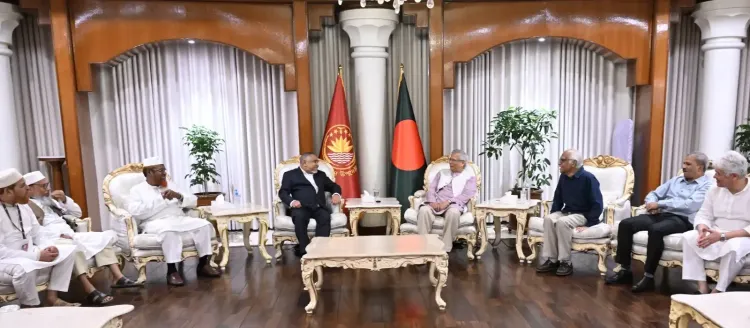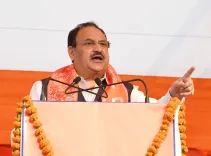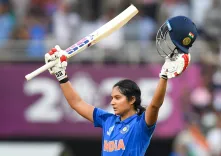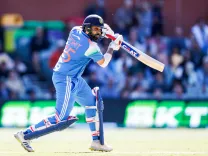Should Bangladesh Hold a Referendum for July Charter Implementation Ahead of Elections?

Synopsis
Key Takeaways
- Jamaat-e-Islami and NCP demand a referendum for the July National Charter.
- Both parties argue the referendum should occur before the elections.
- The BNP proposes the referendum coincide with the national elections.
- Concerns have been raised regarding bias in the Election Commission.
- Political tensions are escalating ahead of next year's elections.
Dhaka, Oct 23 (NationPress) As political tensions intensify in Bangladesh, the radical Islamist group Jamaat-e-Islami and the National Citizen Party (NCP) have jointly urged for a referendum to put the July National Charter into effect prior to the upcoming elections, according to local media reports.
These demands were articulated during distinct meetings with the interim government's Chief Advisor Muhammad Yunus on Wednesday night at his official residence in Dhaka.
This situation unfolds amidst rising tensions with the Bangladesh Nationalist Party (BNP), which has proposed conducting the referendum concurrently with the national elections scheduled for February 2026. In contrast, Jamaat and NCP assert that it should occur before the elections.
After their meeting with Yunus, Jamaat leader Syed Abdullah Muhammad Taher remarked, "We informed the chief advisor that all political factions have endorsed the July Charter. What is essential now is establishing its legal framework, executing it properly, and making necessary adjustments before the elections."
"The BNP has consented to the referendum but complicated the situation by insisting it coincide with the election date. The referendum is a critical matter, unrelated to the national election. Jamaat proposes conducting the referendum by the end of November, allowing ample time for the elections thereafter. If the referendum is not conducted prior to the elections, a February election will be unacceptable," quoted the Jamaat leader from the prominent daily, The Dhaka Tribune.
During the discussions, Jamaat also expressed concerns regarding several advisors to Yunus; however, the party chose not to disclose any specific names.
"We indicated that certain individuals are misleading him (the chief advisor). We assured him of our confidence in him, but some of his advisors are seemingly favoring a particular party. He needs to remain vigilant and aware of them," Taher declared.
Meanwhile, NCP Convener Nahid Islam, following his meeting with Yunus, informed reporters that the party has advocated for reform within the Election Commission (EC), emphasizing that it must be restructured in accordance with the legal framework or consensus outlined in the July Charter.
"We are witnessing partiality within the Election Commission. An unbiased Election Commission is crucial for a fair election. If the election lacks fairness, the government bears the responsibility. We have communicated this to the government and urged reform of the Election Commission prior to the elections," the NCP leader stated.
Bangladesh is currently navigating through increasing uncertainty and political unrest ahead of the upcoming elections.
The factions that previously collaborated with Yunus to dismantle the democratically elected government of the Awami League, led by Sheikh Hasina, are now embroiled in disputes over reform proposals.









